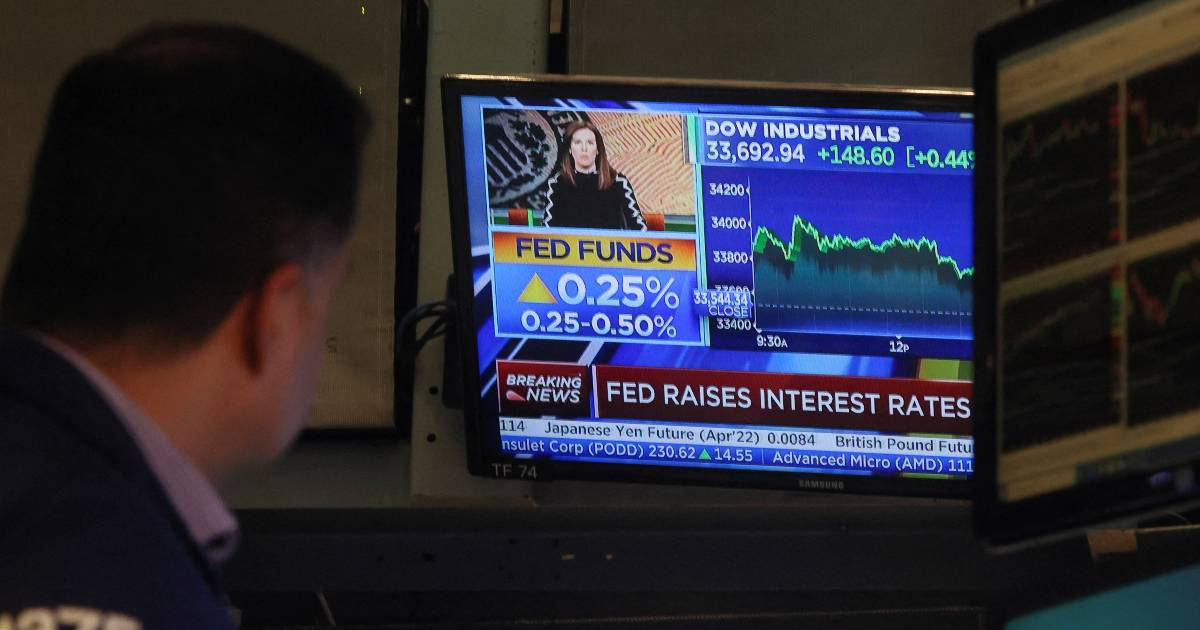Trump's FTC Nominee: A Deep Dive into Andrew Ferguson's Background and Potential Impact
Meta Description: Andrew Ferguson, Trump's FTC nominee, faces scrutiny. This in-depth analysis examines his career, qualifications, potential policies, and implications for antitrust enforcement, consumer protection, and the future of the FTC under a Republican administration. Learn about his background, past legal battles, and the controversies surrounding his appointment.
Think about this: The Federal Trade Commission (FTC) – the gatekeeper of consumer protection and fair competition in the US – is poised for a significant shift. The incoming administration's choice for its head isn't just a bureaucratic appointment; it's a statement, a potential paradigm shift in how the FTC operates. Andrew Ferguson, a name that may not be familiar to the average person, is about to become a pivotal figure in shaping America's economic landscape. His nomination by President-elect Trump has sent ripples through the business world, sparking intense debate amongst legal experts, consumer advocates, and tech giants alike. This is no ordinary political appointment; this is a potential game-changer. Will Ferguson steer the FTC towards a more laissez-faire approach, potentially loosening regulations and allowing for greater corporate consolidation? Or will he surprise everyone and chart a different course? The stakes are high, the questions are numerous, and the answers remain shrouded in speculation – until now. This comprehensive analysis delves deep into Andrew Ferguson's background, his professional experiences, his potential policies, and the far-reaching consequences of his appointment. We'll examine his legal career, his time as a state official, and the key controversies that have already emerged, giving you a clear picture of the person who could soon be leading one of the most influential regulatory bodies in the world. Prepare to unravel the mystery behind Andrew Ferguson: the man, the lawyer, the potential FTC chairman. Are you ready? Let's dive in!
Andrew Ferguson: Background and Qualifications
Andrew Ferguson's career trajectory has been anything but ordinary. He hasn't just climbed the ladder; he's scaled a cliff face, navigating complex legal terrains and high-stakes political battles. Before even considering his FTC nomination, let's look at the impressive (and sometimes controversial) path that led him to this point.
His background in antitrust law is undeniably strong. Years spent in prominent Washington D.C. law firms honing his skills, tackling complex mergers and acquisitions, and fighting for clients in high-profile antitrust litigation gave him a deep understanding of the intricacies of competition law. This experience, while valuable, also brings potential conflicts of interest to the table – a point critics are quick to highlight. His work defending large corporations could cast a shadow on his ability to impartially regulate them. It's a tightrope walk between experience and potential bias, a critical point for anyone assessing his suitability for the FTC's top job.
But his experience extends beyond the courtroom. His stint as Virginia's Deputy Attorney General provided him with valuable experience in government, exposing him to the complexities of public policy and the realities of balancing competing interests. This role, though different from the FTC’s purview, likely provided insights into regulatory processes and the political landscape, potentially invaluable assets for someone navigating the Washington D.C. swamp. This dual experience – in the private sector and public service – paints a multifaceted portrait, one that invites both praise and scrutiny.
Antitrust Enforcement Under Ferguson’s Potential Leadership
The biggest question on everyone's mind is: what will Ferguson’s leadership mean for antitrust enforcement in the US? His past work suggests a potential shift towards a more lenient approach, potentially leading to fewer challenges to mergers and acquisitions and a less stringent regulatory environment. This could be a boon for large corporations seeking to consolidate their market power, but it might come at the expense of smaller businesses and consumers.
Such a shift could have profound implications for various sectors, from technology to healthcare. Imagine a scenario where mega-mergers are less likely to be challenged, potentially leading to less competition and higher prices for consumers. Or conversely, perhaps Ferguson will surprise everyone and adopt a more interventionist approach, proving his critics wrong. The uncertainty is precisely what makes this nomination so critical and so potentially transformative.
The debate is further fueled by the current political climate. With a Republican administration, the likelihood of a more deregulation-friendly approach is increased, and Ferguson's nomination seems to fit this narrative. However, it’s crucial to remember that the FTC isn’t solely influenced by the political party in power; it's meant to operate with a degree of independence, upholding its mission regardless of shifts in the White House. However, the composition of the commission itself significantly influences its final decisions.
Consumer Protection Under a Ferguson-Led FTC
Consumer protection is another vital area where Ferguson's influence could be significant. While his previous roles haven't been directly focused on consumer advocacy, his experience in antitrust law is indirectly relevant. Strong competition often leads to better products and lower prices for consumers, thus, indirectly benefiting them. However, the direct impact of Ferguson's potential leadership on consumer protection remains uncertain.
It’s essential to examine his past stances on consumer protection regulations to get a clearer picture. Has he publicly supported or opposed specific consumer protection laws? Has he shown a willingness to prioritize consumer interests in his legal work? These are questions that require thorough investigation and should be addressed before forming a concrete opinion.
Potential Controversies and Scrutiny
Ferguson’s nomination has not been without controversy. Several critics have raised concerns about potential conflicts of interest, given his past representation of large corporations. The scrutiny he faces is intense, and rightfully so. The FTC holds significant power, and its decisions directly impact the lives of millions of Americans. Therefore, ensuring the impartiality and integrity of its leadership is paramount.
The confirmation process will undoubtedly involve rigorous questioning regarding his past work, his views on antitrust enforcement, and his commitment to consumer protection. The Senate will have a critical role to play in evaluating his suitability for this position, and it's crucial for senators to thoroughly examine his qualifications and potential biases. The American public deserves a transparent and accountable process.
FAQ: Addressing Common Questions About Andrew Ferguson's Nomination
Here are some frequently asked questions addressed to provide clarity:
Q1: What is the Federal Trade Commission (FTC)?
A1: The FTC is an independent federal agency whose primary mission is to protect consumers and promote competition. It enforces federal antitrust laws, prevents fraud, and protects consumers' privacy. Think of them as the guardians of fair play in the marketplace.
Q2: What are the main concerns about Ferguson's nomination?
A2: The primary concern revolves around potential conflicts of interest due to his past representation of large corporations. Critics worry this might bias his decisions as FTC chair, favoring corporate interests over consumer protection and fair competition.
Q3: What is the role of the Senate in this process?
A3: The Senate holds confirmation hearings to evaluate the nominee's qualifications and suitability for the position. Senators can question the nominee, scrutinize their record, and ultimately vote to confirm or reject the nomination.
Q4: What are the potential long-term impacts of Ferguson’s appointment?
A4: The long-term impacts are highly dependent on his actual policies and actions. It could lead to a more laissez-faire approach to antitrust enforcement, potentially impacting competition, consumer prices, and innovation.
Q5: How can I stay informed about the confirmation process?
A5: Follow reputable news sources covering the Senate confirmation hearings and the FTC. Government websites and official statements from the Senate and the FTC are reliable sources of information.
Q6: What is the likelihood of Ferguson's confirmation?
A6: The likelihood depends on various factors, including the Senate's political composition, the outcome of the confirmation hearings, and the extent of public scrutiny and debate. It's too early to definitively predict the outcome.
Conclusion: A Pivotal Moment for the FTC
Andrew Ferguson's nomination to lead the FTC marks a pivotal moment for the agency and for American consumers. His background, while impressive, also raises crucial questions about potential conflicts of interest and the future direction of antitrust enforcement and consumer protection. The confirmation process will be a crucial test of his commitment to impartial regulation and the well-being of American consumers. The coming months will reveal whether he can navigate the complexities of this critical role and successfully lead the FTC into a new era. It’s a situation that demands our attention, our vigilance, and our informed participation in the democratic process. The future of fair competition and consumer protection in the US hangs in the balance.



